Horik I was a Viking King who ruled Denmark during the Viking Age. He was born in the late 8th century CE, the son of King Gudred of Denmark.
Horik I came to power with the help of his brothers and co-ruled Denmark with Harald Klak before seizing the throne for himself. He was known for his long reign, which featured increasing raiding in the Frankish lands.
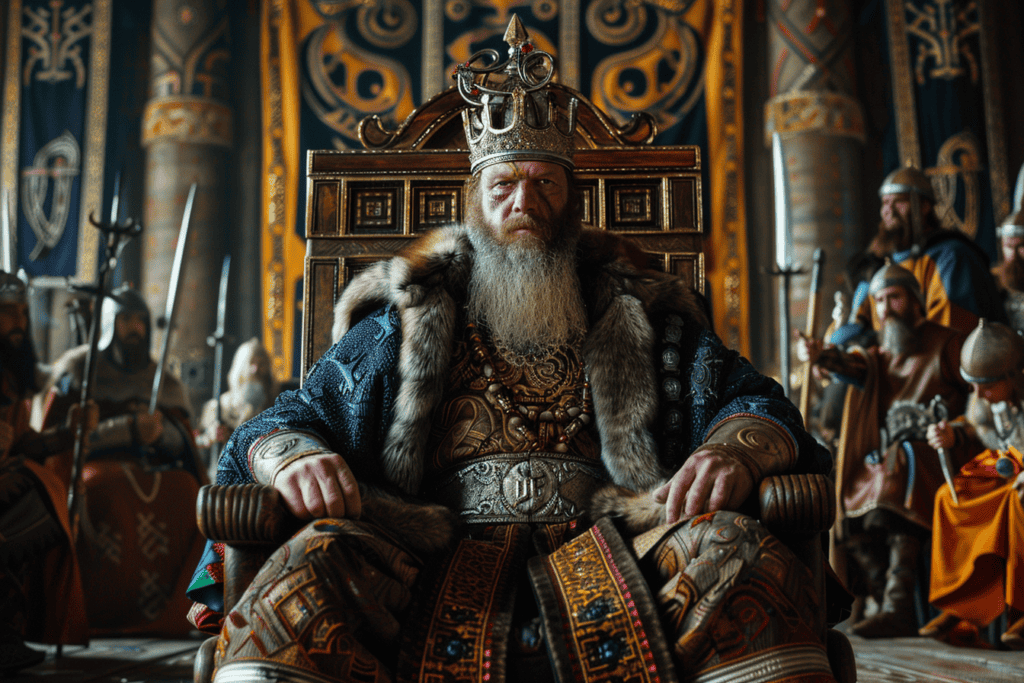
Horik I was a prominent figure during the Viking Age, and his reign was marked by both military conquests and political alliances.
He was an ambitious ruler who sought to expand his territory and increase his wealth through raiding and trading. Horik I was also known for his diplomatic skills, and he formed alliances with other Viking leaders to strengthen his position.
Despite his many accomplishments, Horik I faced many challenges during his reign, including conflict with neighboring kingdoms and internal power struggles.
Nevertheless, he was able to maintain his position as King of Denmark for many years and left a lasting legacy in Viking history.
Early Life and Rise to Power

Horik I was born in the late 8th century in Denmark, to the royal family of the Danes. His father, Gudfred, was the King of the Danes, and his mother’s name is not known.
Horik was the youngest of Gudfred’s three sons. His older brothers, Hemming and Harald Klak, were also rulers of Denmark at different times.
Growing up, Horik was likely trained in the art of warfare and leadership, as was customary for young princes of the time.
He would have also been exposed to the political and social dynamics of the Viking Age, which was characterized by frequent raids and battles between different tribes and kingdoms.
Ascension to the Throne
Horik’s ascension to the throne was not straightforward. When his father Gudfred died in 810, he was succeeded by his eldest son Hemming. However, Hemming’s reign was short-lived, as he was assassinated in 811.
Harald Klak then became the King of the Danes, but his rule was also unstable, and he was eventually exiled in 814.
Horik became co-ruler with his brother Harald in 813, and when Harald was exiled, Horik became the sole king of the Danes around 828.
Horik’s reign was marked by frequent conflicts with neighboring tribes and kingdoms, including the Franks and the Saxons.
Horik was also a patron of the legendary Viking warrior Ragnar Lothbrok, who is believed to have been an ally of his. Together, they led a successful raid on Paris in 845, which forced the Frankish King Charles the Bald to flee.
Despite the challenges he faced, Horik was able to consolidate his power and establish himself as a strong and respected leader.
Internal Struggles and Civil War – Reign and Conflicts

Horik I’s reign was marked by internal struggles and civil wars. Upon coming to power with the aid of his brothers, he co-ruled Denmark with Harald Klak before seizing the throne for himself.
However, his reign was not without challenges. He faced opposition from his own family members, including his nephews and cousins, who were vying for power and control.
In fact, Horik’s own brother, Ragnfred, rebelled against him and declared himself king. This led to a civil war between the two brothers, which lasted for several years. Ultimately, Horik emerged victorious and consolidated his power over Denmark.
Relations with the Franks and Saxons
Horik’s reign also saw increasing raiding in the Frankish lands, which ultimately led to conflicts with the Frankish Empire.
He had a complicated relationship with the Frankish king, Louis the Pious. While the two kings initially had a peaceful relationship, things took a turn for the worse when Horik began raiding Frankish territories.
Horik’s conflicts with the Saxons were also a significant part of his reign. He had a long-standing rivalry with the Saxon king, Widukind, and engaged in several battles with him.
Horik was ultimately successful in defeating Widukind and establishing his dominance over the Saxons.
Alliances and Rivalries
Horik’s reign was characterized by both alliances and rivalries with other Viking leaders.
He formed alliances with other Viking kings, including the Norwegian king, Harald Fairhair, and the Swedish king, Olof Bjornsson. However, he also had rivalries with other Viking leaders, such as the legendary Viking hero, Ragnar Lodbrok.
Introduction of Christianity
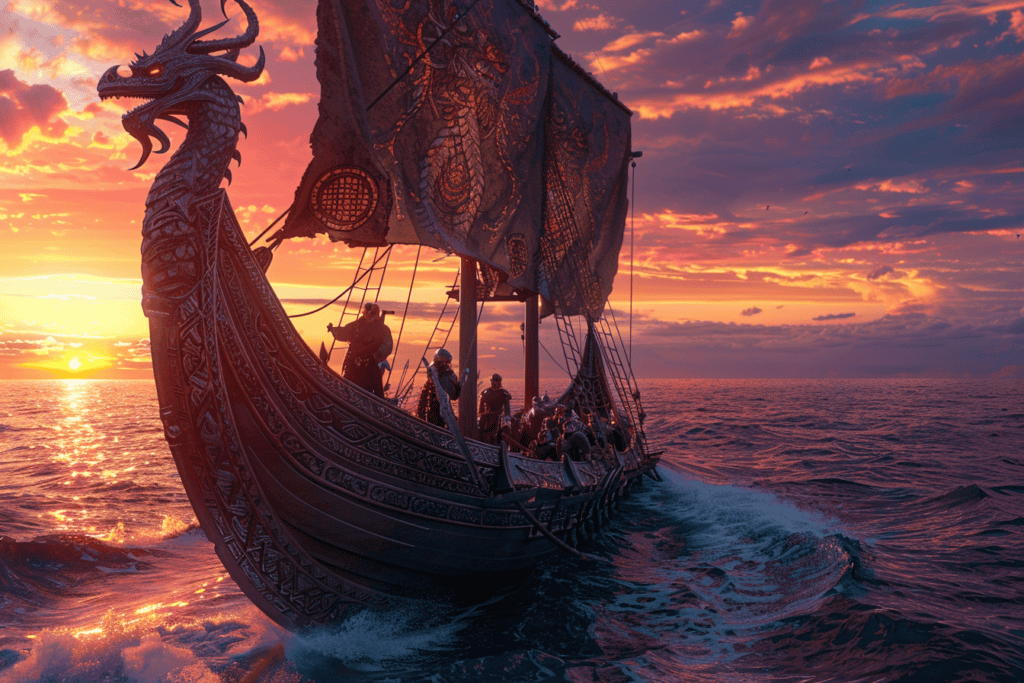
Horik I’s reign as the King of Denmark was marked by significant cultural and religious changes. Christianity was introduced to Denmark during his reign, and it had a profound impact on the country’s culture and society.
The Christian mission was led by Ansgar, a monk from Hamburg, who was sent to Denmark by Louis the Pious, the King of the Franks.
Ansgar faced many challenges during his mission, as the Danes were a pagan people who were deeply rooted in their traditional beliefs and customs. However, he was eventually able to establish a Christian presence in Denmark, and he founded the first Christian church in Ribe in the early 9th century.
The introduction of Christianity had a significant impact on Danish society, as it brought about changes in the way people lived and interacted with each other.
The Christian faith emphasized the importance of charity, kindness, and forgiveness, and these values began to permeate Danish society. The church also played a crucial role in education and literacy, and it helped to spread knowledge and learning throughout the country.
Viking Raids and Expansion
Horik I’s reign was also marked by significant Viking raids and expansion.
The Danes were known for their seafaring skills, and they launched raids on neighboring countries, including England, France, and Germany. These raids were often brutal and violent, and they had a significant impact on the countries that were targeted.
The Vikings also established trading centers throughout Europe, including the important trading center of Hedeby.
This center was located on the Jutland Peninsula, and it was a hub for trade between the Danes and other European countries.
The Viking raids and expansion had a significant impact on Danish culture and society.
They brought about changes in the way people lived and interacted with each other, and they helped to shape Danish identity and culture. The Vikings also played a crucial role in the development of the Danish language, as they introduced new words and phrases that are still in use today.
Legacy and Historical Significance
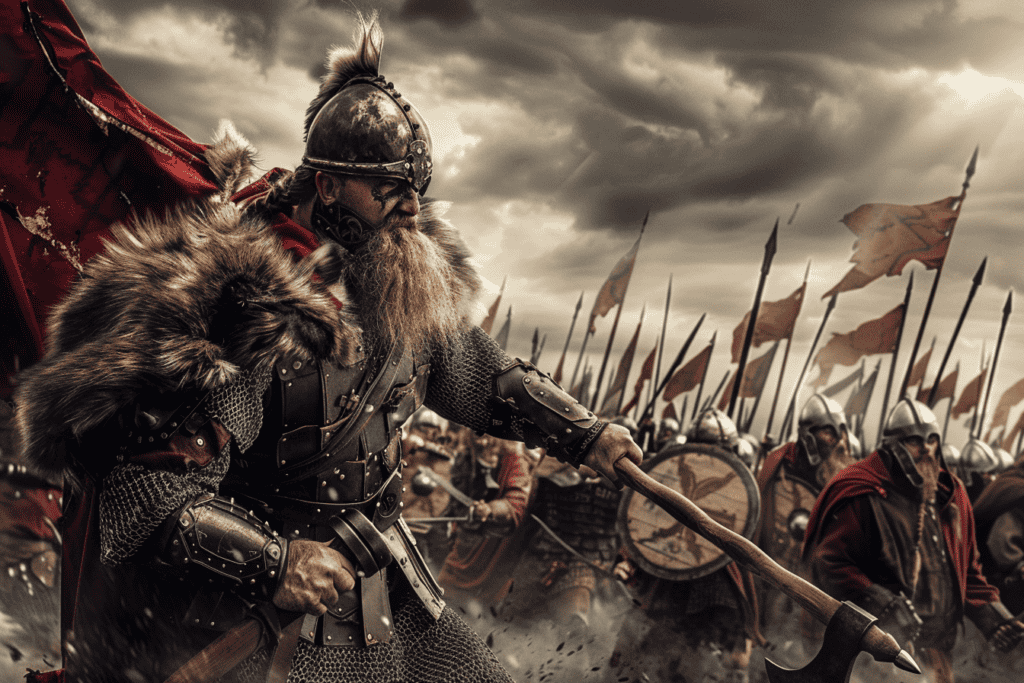
Horik I’s legacy is primarily preserved in the historical texts of the time, including Gesta Danorum and Saxo Grammaticus.
These texts describe Horik I as a powerful and ambitious ruler who expanded his kingdom through military conquests. He is also portrayed as a skilled diplomat who maintained good relations with neighboring kingdoms.
Adam of Bremen, a medieval chronicler, also wrote about Horik I in his work “History of the Archbishops of Hamburg-Bremen”. According to Adam, Horik I was a pagan ruler who was hostile to Christianity.
He was also known for his raids on Frankish territories, which led to conflicts with the Carolingian Empire.
In modern times, Horik I is often seen as a viking hero who played a significant role in Danish history. He is remembered for his military prowess and his efforts to expand Denmark’s influence in Scandinavia.
His reign is also seen as a time of great cultural and economic growth in Denmark.
However, some modern historians have criticized Horik I for his aggressive foreign policy and his reluctance to embrace Christianity. They argue that his actions contributed to the decline of the Danish kingdom in the long run.
Despite these debates, Horik I remains an important figure in Danish history and a symbol of the viking age. His legacy continues to inspire historians, artists, and enthusiasts around the world.

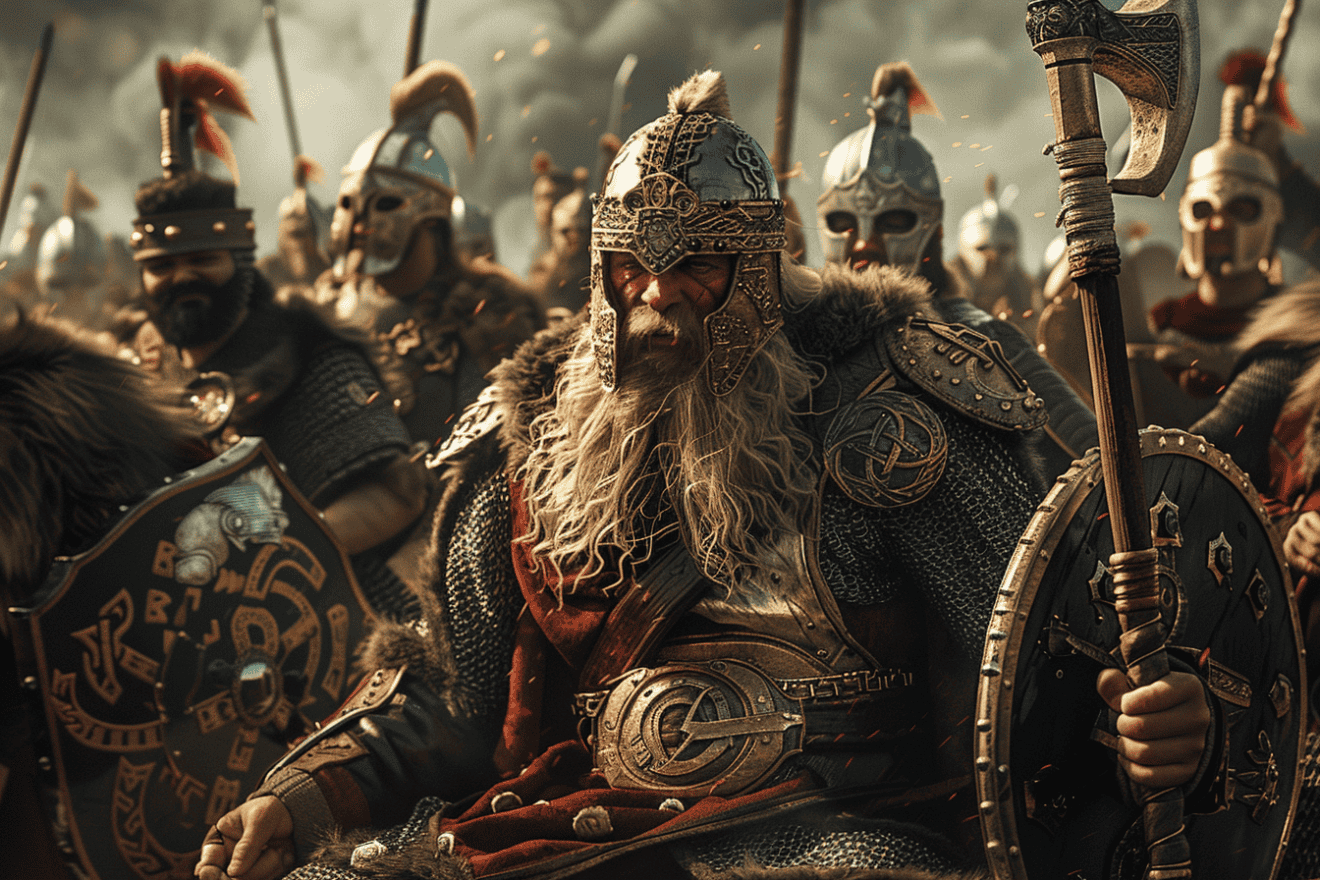

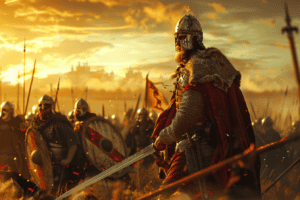






Add Comment